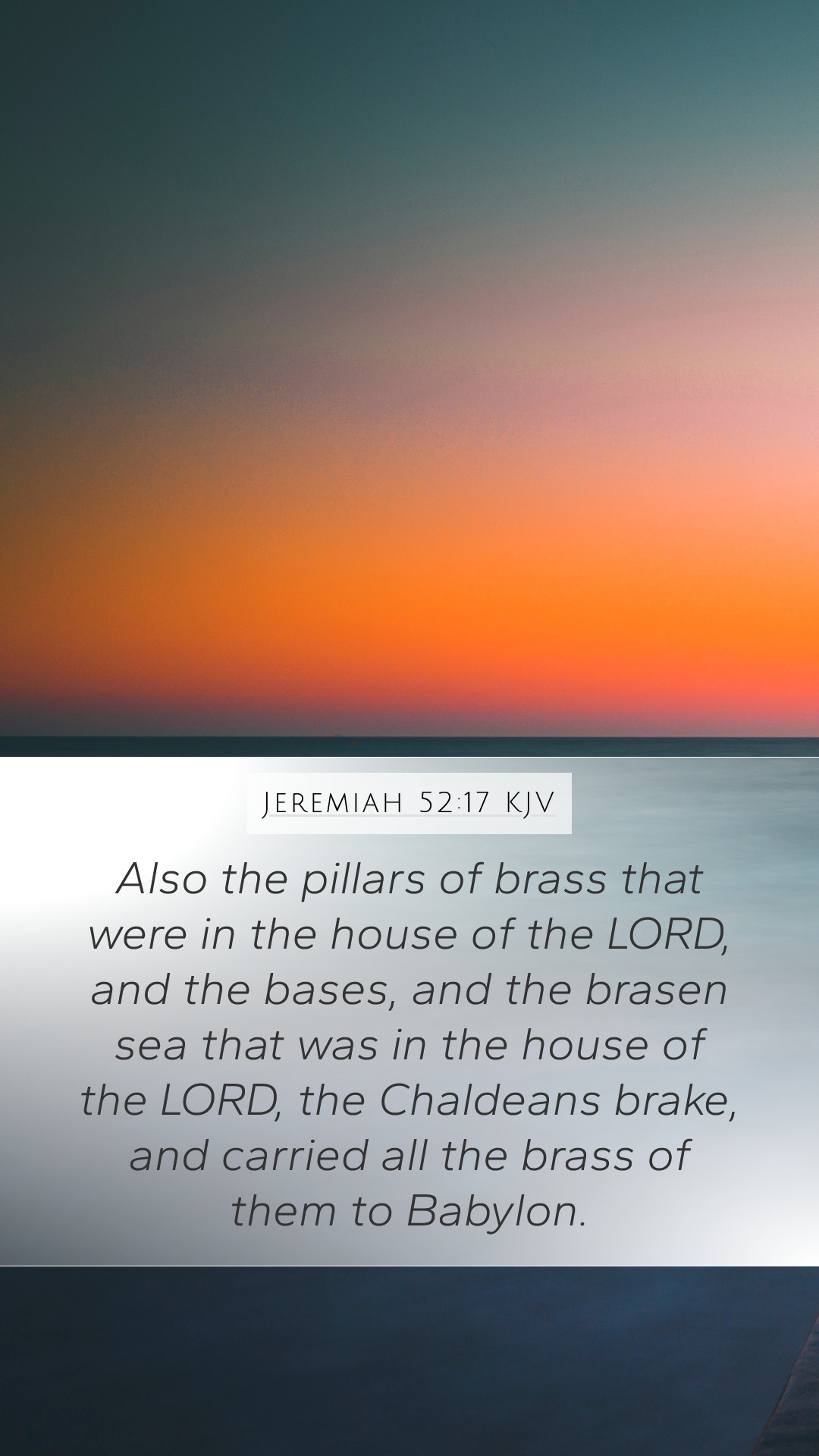Understanding Jeremiah 52:17
Jeremiah 52:17 states: "The pillars of bronze that were in the house of the Lord, and the bases, and the bronze sea that was in the house of the Lord, the Chaldeans broke in pieces, and carried all the bronze to Babylon." This verse captures a pivotal moment in the history of Israel, revealing the destruction brought upon the city of Jerusalem and the temple itself.
Bible Verse Meanings
This verse is part of the narrative that chronicles the fall of Jerusalem in 586 B.C. The destruction of the temple signifies not only a physical loss but also a profound spiritual defeat for the people of Israel.
Contextual Background
The historical backdrop is crucial for understanding Jeremiah 52:17. The Chaldeans, or Babylonians, dismantled the temple, which was the center of Jewish worship and national identity. Matthew Henry notes that the taking of the bronze items symbolizes the complete desolation inflicted upon the Israelite nation.
Symbolic Interpretation
- The Bronze Pillars: The pillars, named Jachin and Boaz, represented strength and stability. Their destruction indicates the loss of God’s favor and the corresponding support for Israel.
- The Bronze Sea: This large basin symbolized the purification and the sustenance offered by God. Its destruction marks a severance of the sacrificial system and communal worship.
Bible Verse Explanations
According to Albert Barnes, the action taken by the Chaldeans illustrates not just military conquest but also spiritual warfare. The temple, being the dwelling place of God's presence, was intended to be eternal, but due to Israel's unfaithfulness, it succumbed to destruction.
Theological Implications
Adam Clarke emphasizes the role of divine judgment in this event. God allowed this destruction as a consequence of Israel's persistent disobedience and idolatry. It serves as a warning against neglecting the covenant responsibilities to God.
Historical Significance
This event was a fulfillment of the prophetic warnings issued throughout the Book of Jeremiah. The physical removal of these items was not merely an act of desecration; it was a clear indication of Israel's judgment and the gravity of their sin.
Lessons for Today
In our modern context, the dismantling of the sacred symbolizes how sin can disrupt our relationship with God. This verse serves as a reminder of the consequences when a nation or individual turns away from divine guidance.
Cross References
- 2 Kings 25:13-17: Details the Babylonian conquest and the destruction of sacred items.
- Ezekiel 10:18-19: Describes the departure of God's glory from the temple.
- Jeremiah 7:14: Warns of similar destruction as a result of rebellion against God.
Conclusion
Jeremiah 52:17 encapsulates not just a moment of historical destruction but also serves as a profound theological lesson on God's judgment and the importance of faithfulness to Him. For those exploring Bible verse meanings, this verse is critical to understanding the interplay of God's justice and grace, as well as the ultimate hope found in restoration.


